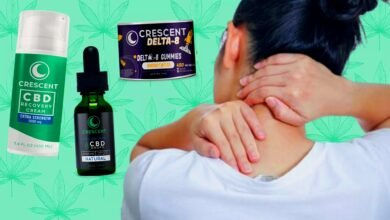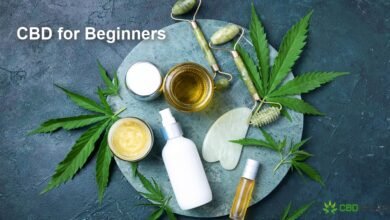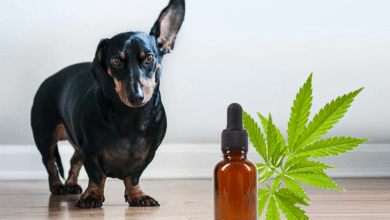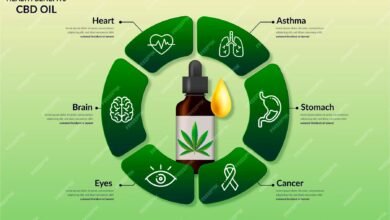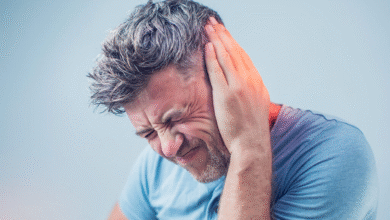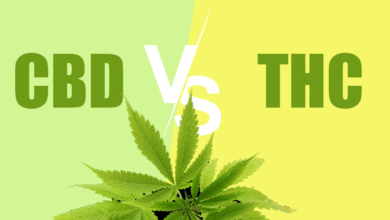Can CBD Help Reduce Exercise Inflammation?
Discover how CBD help reduce exercise inflammation Explore the science, benefits, and ways to use CBD for muscle recovery and pain relief.
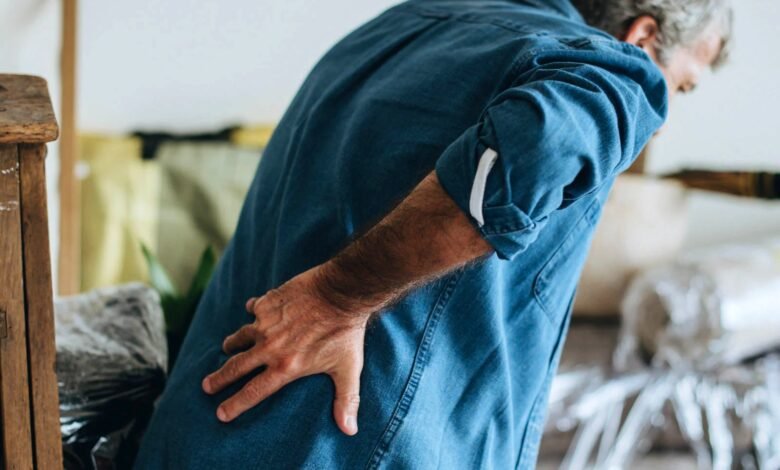
In the world of fitness and wellness, the search for natural remedies to support recovery and performance is ever-evolving. One question that continues to gain traction among athletes and fitness enthusiasts alike is: Can CBD help reduce exercise inflammation? As workouts become more intense and demanding, post-exercise inflammation and soreness are common setbacks. With its growing popularity, cannabidiol (CBD) has emerged as a potential aid in managing inflammation and accelerating recovery. This article explores how CBD might serve as a game-changer in post-exercise care.
We’ll take a detailed look at the science behind exercise-induced inflammation, the properties of CBD, clinical studies, usage methods, and potential side effects. Additionally, we will examine how CBD stacks up against traditional anti-inflammatory options, making it a comprehensive guide for those considering CBD for post-workout relief.
What Is Exercise-Induced Inflammation?
Inflammation is a natural immune response that occurs when the body is subjected to stress or injury. During physical activity, especially high-intensity or resistance training, tiny tears develop in muscle fibers. This leads to a cascade of inflammatory responses:
- Increased blood flow to affected areas
- Immune cell activation
- Release of pro-inflammatory cytokines
While this process is essential for muscle growth and adaptation, excessive inflammation can prolong recovery, cause discomfort, and hinder performance.
Understanding CBD and Its Role in the Body
Cannabidiol, or CBD, is a non-psychoactive compound derived from the hemp plant. Unlike THC (tetrahydrocannabinol), CBD doesn’t produce a high. Instead, it interacts with the body’s endocannabinoid system (ECS)—a complex network of receptors that regulate pain, mood, immune function, and inflammation.
Key Functions of the Endocannabinoid System:
- Regulating immune responses
- Modulating pain and inflammation
- Maintaining homeostasis
CBD indirectly influences ECS receptors (CB1 and CB2), which play a role in suppressing inflammatory signals and managing oxidative stress.
How Can CBD Help Reduce Exercise Inflammation?
So, can CBD help reduce exercise inflammation? Multiple mechanisms suggest that it can. Let’s break them down:
1. Anti-inflammatory Properties
CBD has demonstrated strong anti-inflammatory properties in preclinical studies. It inhibits the release of pro-inflammatory cytokines like IL-6 and TNF-α, which are elevated after strenuous exercise. By reducing these markers, CBD may shorten recovery time and reduce muscle soreness.
2. Reduction of Oxidative Stress
Intense exercise generates free radicals, leading to oxidative stress. CBD is rich in antioxidants, which neutralize free radicals and reduce cellular damage. This further supports recovery and lowers inflammation.
3. Pain Relief
CBD’s analgesic effects are mediated through ECS interaction and influence on serotonin receptors. This can provide relief from delayed onset muscle soreness (DOMS), a common aftermath of challenging workouts.
4. Improved Sleep Quality
Sleep is crucial for recovery. CBD can promote better sleep by reducing anxiety and interacting with receptors that regulate circadian rhythms. Better sleep enhances tissue repair and minimizes inflammatory responses.
5. Muscle Spasm Control
Some users report reduced muscle spasms with CBD usage. Its muscle-relaxing properties can aid in managing post-exercise stiffness and tightness.
Scientific Studies Supporting CBD for Exercise Recovery
Numerous studies provide evidence for CBD’s role in inflammation reduction:
- A 2018 review in Frontiers in Neurology highlighted CBD’s anti-inflammatory, antioxidant, and neuroprotective benefits.
- A 2020 study published in Sports Medicine noted that CBD could improve recovery by modulating inflammatory pathways.
- Animal studies have shown that CBD reduces muscle damage markers and inflammation levels post-exercise.
These findings, although preliminary, bolster the argument that CBD helps reduce exercise inflammation effectively and safely.
Comparing CBD with Traditional Anti-Inflammatories
Conventional anti-inflammatory drugs like NSAIDs (e.g., ibuprofen) are commonly used to manage post-exercise inflammation. However, they come with side effects such as gastrointestinal issues, liver toxicity, and kidney damage with prolonged use.
CBD offers a gentler alternative:
- Non-addictive and non-psychoactive
- Lower risk of side effects
- Can be used long-term
This positions CBD as a favorable option for those seeking sustainable recovery support.
How to Use CBD for Exercise Inflammation
There are various methods to integrate CBD into a post-exercise routine. Choosing the right method depends on your goals, the area of inflammation, and personal preference.
1. CBD Oil or Tinctures
Fast absorption when taken sublingually. Ideal for systemic effects like inflammation reduction and pain relief.
2. Topical CBD Creams and Balms
Applied directly to sore muscles and joints. Offers localized relief without systemic absorption.
3. CBD Capsules
Easy to dose and convenient. Slower absorption but longer-lasting effects.
4. CBD Edibles and Gummies
Great for those who dislike the taste of oil. Discreet and enjoyable, but onset time is slower.
5. CBD Bath Salts and Soaks
Perfect for full-body relaxation. The warm water helps with muscle loosening, and CBD supports anti-inflammatory action.
Dosage Guidelines and Best Practices
There is no one-size-fits-all dosage for CBD. Start low and adjust gradually:
- Beginners: 10-20 mg daily
- Moderate users: 20-40 mg daily
- Athletes and heavy users: 50+ mg daily
Always consult with a healthcare provider before beginning a CBD regimen, especially if you’re on other medications.
Potential Side Effects of CBD
Although generally well-tolerated, CBD may cause minor side effects:
- Dry mouth
- Drowsiness
- Changes in appetite
- Diarrhea
To minimize risks, choose high-quality, third-party tested CBD products from reputable brands.
Choosing the Right CBD Product
Look for the following when selecting CBD:
- Full-spectrum or broad-spectrum for synergistic effects
- CO2 extraction for purity
- Lab-tested for potency and safety
- Organic hemp sources
Popular brands among athletes include Charlotte’s Web, CBDistillery, and Medterra.
Legal and Doping Considerations
CBD is legal in most U.S. states and permitted by the World Anti-Doping Agency (WADA). However, be cautious with full-spectrum products, which may contain trace THC. Always verify your product’s THC content to avoid unintentional doping violations.
Testimonials and Real-World Use Cases
Many professional athletes now advocate for CBD use. From NFL players to MMA fighters, users report quicker recovery, reduced inflammation, and improved well-being.
- Nate Diaz (MMA Fighter): Openly uses CBD post-fight to manage inflammation.
- Megan Rapinoe (Soccer): Promotes CBD for its recovery and wellness benefits.
Frequently Asked Questions (FAQs)
Q: Can CBD help reduce exercise inflammation for older adults? Yes. Older individuals often experience more pronounced inflammation and joint pain. CBD can offer a natural way to manage these symptoms and promote mobility.
Q: Is it safe to take CBD daily? For most people, daily use of CBD is safe. However, long-term studies are still ongoing. Monitor your body’s response and consult with a physician.
Q: How soon will I feel the effects? This depends on the delivery method. Oils work in 15–45 minutes, edibles may take 1–2 hours, and topicals can provide immediate local relief.
Conclusion
The answer to the question “Can CBD help reduce exercise inflammation?” is a resounding yes—backed by science, anecdotal evidence, and a growing body of preliminary research. With its ability to target inflammation, relieve pain, and improve recovery, CBD is rapidly becoming a staple in the fitness community. Whether you’re a casual gym-goer or a professional athlete, incorporating CBD into your routine could be a powerful step toward healthier, faster recovery.
As always, choose high-quality products, consult healthcare providers, and pay attention to how your body responds. In a world where performance and well-being go hand in hand, CBD may well be the natural edge you’ve been looking for.
